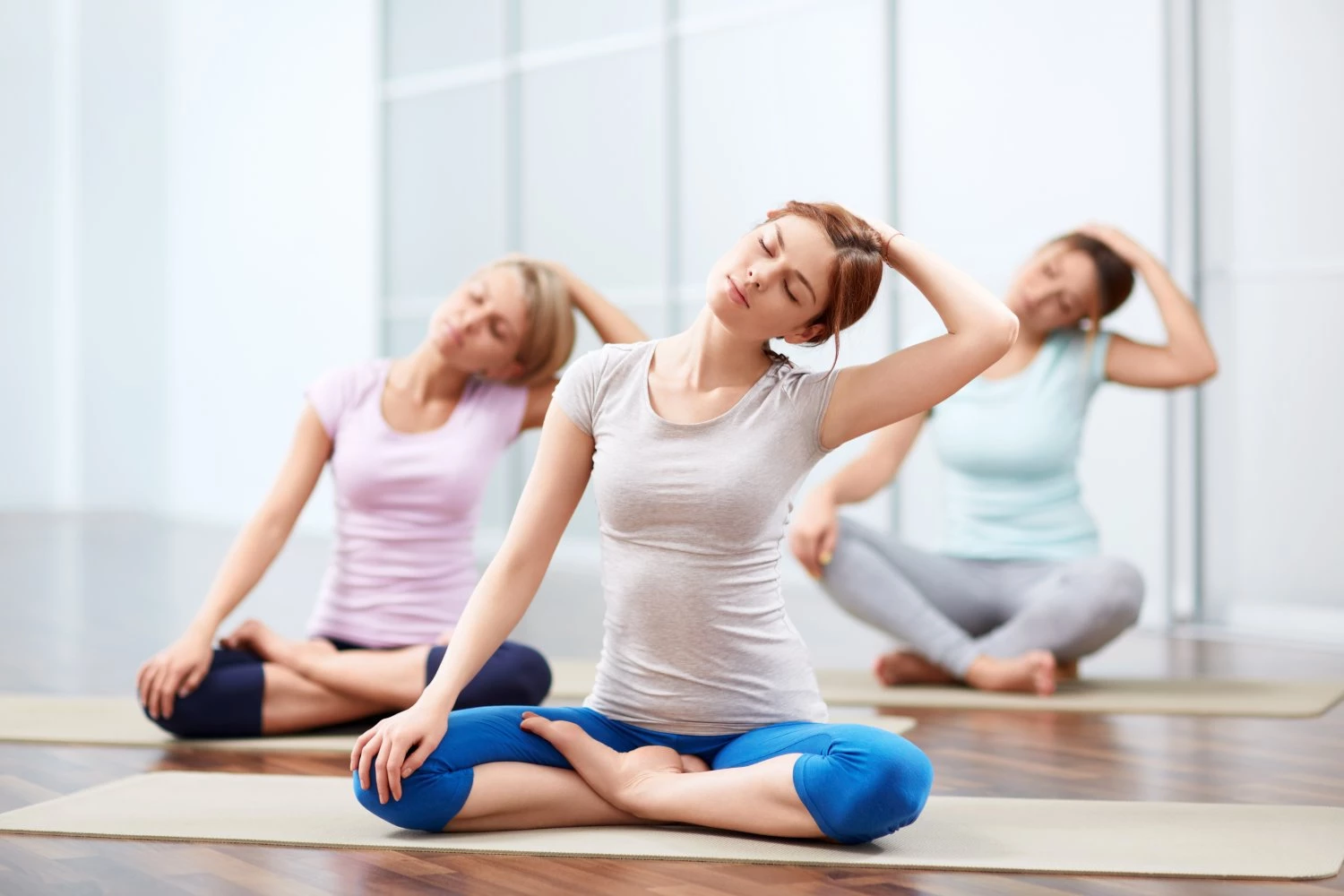Is Yoga as Good for Your Heart as Running? It Depends on Who You Are

Does yoga have cardiovascular and psychological benefits similar to running or other forms of aerobic exercise? For decades yoga aficionados have claimed that it does, however the research findings tend to be mixed at best.
Part of the problem is that there are marked differences between different traditions of yoga and their practices. While Ashtanga, Bikram, and power yoga tend to be relatively vigorous and aerobic in nature, restorative and therapeutically oriented traditions such as Iyengar and Viniyoga place less intense cardiovascular demands on the practitioner. This makes definitive conclusions about the benefits of “yoga” as a generic practice inaccurate and potentially misleading.
Bearing that in mind, a recent article published in the Annals of Behavioral Medicine explored whether experienced yoga practitioners differed in their psychological and physiological fitness compared to regular runners and sedentary individuals. The sample included only those with no known history of heart disease or high blood pressure. Individuals were assigned to either yoga, running or sedentary groups based on self-reported behaviors.
Runners, Yogis & Sedentary Adults: Who Has the Healthiest Hearts?
Participants in the yoga group were required to practice a combination of physical postures and meditation for a minimum of 30 minutes, at least three times per week for a minimum of two years. Individuals in this group (47 adults, 57% female) used a wide variety of styles (Hatha, Ashtanga, power, Vinyasa Flow, Kundalini etc.), and had practiced from a range of two to 18 years at a mean of 5.1 times per week. Forty-nine percent of the group identified themselves as yoga instructors. Students of Bikram yoga were excluded because physical exertion is performed in high heat, which can impact cardiovascular performance.
Those in the running group (46 adults, 57% female) were required to run for at least 30 minutes, three times per week for a minimum of two years. They reported running regularly from two to 43 years at an average of nearly 4 times per week. Fifty-six percent of runners had participated in a marathon or half marathon.
Sedentary group members (52 adults, 54% female) consisted of adults who indicated that they did not engage in any activity designed to increase aerobic fitness or decrease stress.
Researchers measured participants on a wide variety of physiological measures of cardiovascular health and aerobic fitness including systolic and diastolic blood pressure, heart and respiration rate, and others. Lifestyle factors such as sleep, smoking habits and diet were also assessed. In addition, participants completed questionnaires related to a number of psychological factors including depression, stress, hostility, social support and mindfulness.
Both yogis and runners appeared to reap similar physiological and psychological health benefits compared to sedentary adults with no history of heart disease or hypertension. Yogis and runners had lower resting heart rates, and performed better on other indicators of cardiac health than sedentary individuals. Both also indicated lower levels of cigarette smoking and stress and endorsed fewer depressive symptoms than those in the sedentary group.
Runners reported better sleep quality and higher levels of social support compared to yogis and sedentary individuals, whereas yogis had lower resting respiration rates, and were more likely to be vegan, vegetarian or pescetarian. Only male yogis and runners demonstrated better aerobic fitness than their sedentary counterparts. There were no differences in blood pressure between groups.
The Benefits of Practice Differ for Men & Women
It is interesting that male yogis performed similarly to male runners on the fitness test, whereas female yogis performed similar to women in the sedentary group. The authors suggest that this may be due to the fact that men practice more aerobically intense forms of yoga asana practice than women. However, they were unable to test this hypothesis with the data from this sample.
This study is good news for yogis who look to their practice to improve their quality of life. Findings suggest that those with a regular yoga practice are likely to adopt a healthy lifestyle, and to experience lower levels of perceived stress and depression than runners or inactive adults. This is likely due to a number of factors related to yoga practice and philosophy, including the value placed on care for self and others. These unknown factors will hopefully be the focus of future studies on the benefits of yoga for both healthy adults and those suffering from cardiovascular and other types of illness.
Whether you are a man or woman who runs, practices yoga or does both, this study suggests that yoga is indeed good for your health. Regular yoga practice is even better, regardless of your gender.
 B Grace Bullock, PhD, E-RYT 500 is a psychologist, research scientist, educator, author, yoga and mindfulness expert and creator ofBREATHE: 7 Skills for Mindful Relationships. Her mission is to reduce stress, increase health and wellbeing and improve the quality of relationships. She offers classes, workshops, writing and research that combine the wisdom of applied neuroscience, psychophysiology, psychology and contemplative science and practice. Her goal is to empower individuals, groups, leaders and organizations to reduce chronic stress and increase awareness, attention, compassion, mindfulness and effective communication to strengthen relationships, release dysfunctional patterns and unlock new and healthy ways of being. Dr. Bullock is a Certified Viniyoga Therapist and Faculty at the Integrated Health Yoga Therapy (IHYT) Training program. She is the former Senior Research Scientist at the Mind & Life Institute and former Editor-in-Chief of the International Journal of Yoga Therapy. For more information see www.bgracebullock.com
B Grace Bullock, PhD, E-RYT 500 is a psychologist, research scientist, educator, author, yoga and mindfulness expert and creator ofBREATHE: 7 Skills for Mindful Relationships. Her mission is to reduce stress, increase health and wellbeing and improve the quality of relationships. She offers classes, workshops, writing and research that combine the wisdom of applied neuroscience, psychophysiology, psychology and contemplative science and practice. Her goal is to empower individuals, groups, leaders and organizations to reduce chronic stress and increase awareness, attention, compassion, mindfulness and effective communication to strengthen relationships, release dysfunctional patterns and unlock new and healthy ways of being. Dr. Bullock is a Certified Viniyoga Therapist and Faculty at the Integrated Health Yoga Therapy (IHYT) Training program. She is the former Senior Research Scientist at the Mind & Life Institute and former Editor-in-Chief of the International Journal of Yoga Therapy. For more information see www.bgracebullock.com



